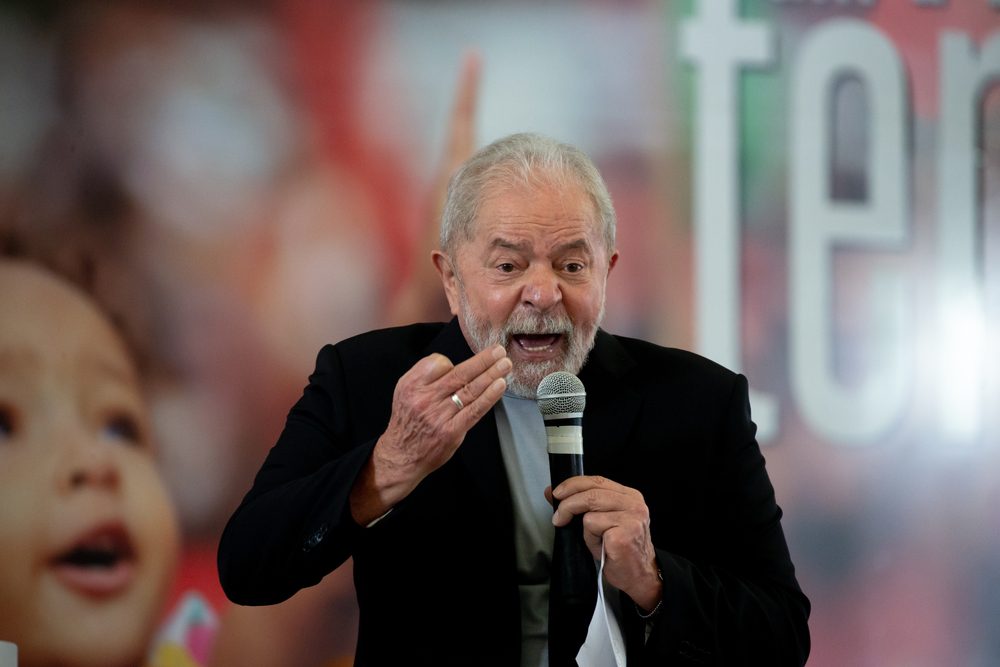Latin America has thrown a curveball into the ongoing Mercosur trade negotiations after a leak from the South American delegation detailed how the bloc would demand both colonial reparations from Europe and the deletion of any mention of support for Ukraine in any draft agreement.
The EU is currently looking to revive and fastrack Mercosur, the long-proposed free trade agreement between Europe and South America, in light of recent geopolitical turmoil and the prospect of a rift with China, as European officials sat down to a summit in Argentina this week in unusually tense talks.
South American nations led by Brazil have so far been defiant in the face of EU environmental demands. President Lula declared that the region did not want to play a subservient role by simply supplying the EU with raw materials and instead wished to develop its economic capacity as an equal partner with Europe.
According to the leak, the South Americans are emboldened to the point of asking for reparations for the historic victims of the transatlantic slave trade, which they say contributed to the underdevelopment of the region. Meanwhile, both sides are gearing up for a major summit in Brussels later this month to hammer out the details of the landmark trade deal.
Getting Mercosur over the line is a major strategic goal of the six-month Spanish presidency of the EU Council, which began this week. An earlier Mercosur summit was called off due to the Latin Americans objecting to harsh EU environmental demands, which they say would unfairly cripple their economy.
Lula assumes presidency of Mercosur trade bloc, slams EU proposal that would allow it to sanction Latin American countries if they fail to meet "sustainability commitments":
— COMBATE |
"The additional instrument presented by the EU is unacceptable. Strategic partners do not negotiate on… pic.twitter.com/87H8W9D4AL(@upholdreality) July 5, 2023
EU negotiators were also shocked by the refusal of their Latin America counterparts to remove any mention of Ukraine in the provisional Mercosur text, as one anonymous diplomat told Euractiv that the EU was foolish to think that South America would simply acquiesce to Europe’s strategic demands.
The original European proposals for the talks had included multiple references to Ukraine, including a pledge that both sides would support UN resolutions protecting Ukrainian sovereignty against Russian aggression. Ukraine has been a redline issue for the EU in almost all of its diplomatic interactions since 2022. In contrast, Latin America has remained generally neutral in the conflict despite Brazil presenting a separate peace plan.
Latin American leaders are understood to have been hostile to the presence of Ukrainian President Zelenskyy, who was originally invited to this month’s Mercosur summit at the request of Spain. However, his attendance was vetoed by Latin American countries apprehensive about alienating Russia.
Previous attempts to push Mercosur through were derailed due to the objections of European beef farmers in 2018, who feared that they would be undercut by cheap Brazilian imports. The proposed free trade agreement has been criticised by the Left and the Right as environmentalists say it would fatally reduce EU food safety values and promote an economic race to the bottom.
As a result of Chinese embargoes announced this week on critical raw materials needed for Europe’s green transition, the EU is struggling to find geopolitical partners as multipolarity and the breakdown of the old neoliberal pecking order results in the bloc having far less bargaining power than before.
In recent years, the EU has failed to secure free trade agreements due to its onerous regulations and political complications, which have plagued the disunified bloc. This condition was perfectly exemplified by the postponement of EU-Australian trade talks over the protected status of prosecco and feta cheese last month.






